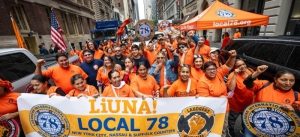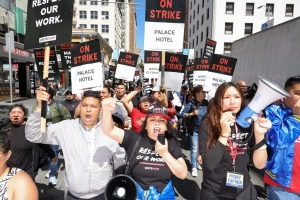
![]() Labor Notes, an organization dedicated to the growth of the labor movement is holding a special on line workshop Jan. 6 to discuss what unions can do to protect immigrant fellow workers and union members from the threatened attacks by the incoming Trump administration.
Labor Notes, an organization dedicated to the growth of the labor movement is holding a special on line workshop Jan. 6 to discuss what unions can do to protect immigrant fellow workers and union members from the threatened attacks by the incoming Trump administration.
The Labor Notes call to action, as posted on their website, reads as follows:
“As the Trump administration cracks down on undocumented workers, that persecution threatens the power and solidarity of all of us in the labor movement. From farm workers to food processing to janitors to taxi drivers to building trades to everyone whose labor makes society run, we draw strength from the recognition that an injury to one is an injury to all.
“Join rank-and-file union members at the Labor Notes National Call on building solidarity to support immigrant workers.
“When: Monday, January 6
Time: 8 p.m. – 9:30 p.m. ET / 5:00 p.m. – 6:30 p.m. PT
Where: This is an online event and will be held via Zoom.
“This national online workshop will start with a panel of union members and leaders sharing lessons on how we beat divisions in our unions and communities, and then laying out action plans for how we go on offense when immigrant co-workers are under attack.”
Courtesy Locker Associates, New York
For further information and how you can join in the Zoom conference click this link.



